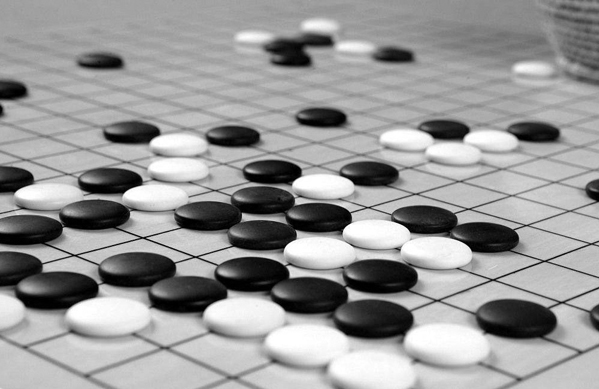The black and white passion of Professor He Yunbo

For Professor He Yunbo, weiqi represents Chinese intellectuals’s pursuits of both contention and freedom.
Appointed as a professor at the age of 33 in 1996, He Yunbo specializes in studies of Russian literature, especially Dostoevsky. He is currently a doctoral supervisor in Xiangtan University and a member of the council of the China Comparative Literature Association.
His Dostoevsky and Russian Cultural Spirits comprehensively analyzes Dostoevsky from the perspectives of cultural psychology, religion, urban studies, psychoanalysis, modernism and national ethos. He is a pioneer in the virgin soil of Russian literature studies.
His studies of Russian literature and comparative literature represent only part of his achievements. Attempting to associate his interests with academic studies, He encountered weiqi while he was studying for a master’s degree, through which he gained an opportunity that reflected his aspirations. For him, Dostoevsky and weiqi represent two ways of living a life: Dostoevsky’s method of redemption and the weiqi aesthetic philosophy of life. Dostoevsky depicts a miserable world in which one would have to fight one’s way out with a resolute mind, representative of the religious redemption in Western culture.
Weiqi, on the other hand, represents the pursuit of an aesthetic life, as embodied by certain traditional Chinese intellectuals. Ancient Chinese always associated life with art, making life into art and pursuing art as life. The Chinese way represents the pursuit of an unconstrained life. For He, the intertwining black and white stones on the weiqi board are like a traditional Chinese shuimo, or ink-wash painting, providing people with infinite imagination.
He was awarded a doctorate with his dissertation The Realm of Weiqi: Weiqi and the Chinese Artistic Spirit in 2003. The dissertation explores the meaning of weiqi as an art and as a way of life. In 2016, he published History of Weiqi thought, in which he attempted to establish a complete system of knowledge by observing weiqi as a culture, an art and a philosophy. To realize this aspiration, He worked day and night. However, the tiredness of body, for him, also provides irresistible spiritual joy.
In the postscript to the History of Weiqi Thought, He wrote: “Falling in love with a person or a thing is like an addiction. One worries about it as if it is burning inside his heart. One would also enjoy it as if he is tasting malt sugar. It is unstoppable.” This is his monologue for his obsession with weiqi culture.
He even names his study Xiaoxiang Tingyilu which means “a cottage by the Xiao River and Xiang River where one can listen to the sounds of weiqi stones touching the board.” Facing the books in the study and the moon outside the window, he listens to ancient intellectuals and weiqi-players who talked with their hands. Sensing this infinite meaning without uttering a word represents endless joy.
Hu Qionghua is from the College of Literature and Journalism at Xiangtan University.
